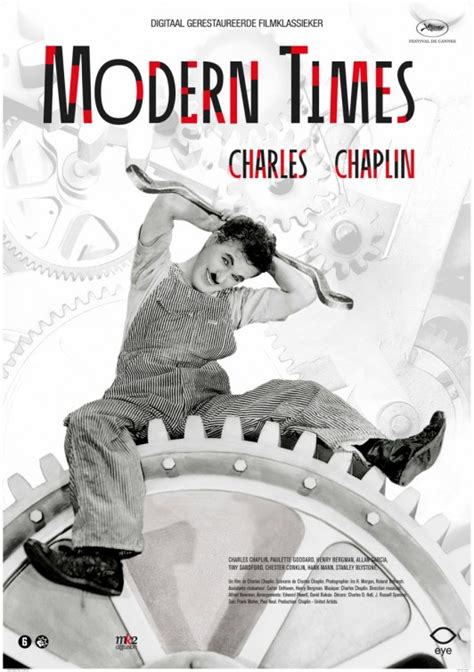Modern Times

Description:
Modern Times is a 1936 silent comedy film that satirizes the desperate employment and financial conditions many people faced during the Great Depression. Chaplin's iconic character, The Tramp, struggles to survive in the modern, industrialized world. The film is a critical commentary on the dehumanizing effects of industrialization and the plight of ordinary workers. With its blend of slapstick comedy and social critique, Modern Times remains a timeless classic.Keywords:
Comedy, Silent Film, Industrialization, Great Depression, Social Commentary, Labor RightsWhat is considered the Modern Times?
"Modern Times," a 1936 film directed by Charlie Chaplin, satirizes the industrialization and modernization of society during the Great Depression. It portrays the struggles of the Little Tramp character as he navigates the challenges of mechanized labor, unemployment, and the dehumanizing effects of technology. The film reflects the anxieties of the era regarding the fast-paced changes in industry and society, highlighting issues like worker exploitation and the loss of individuality in a rapidly modernizing world.
Why is Modern Times a silent film?
"Modern Times," directed by Charlie Chaplin, is considered a silent film despite being released in 1936, during the sound era. Chaplin chose to use minimal synchronized sound to maintain the silent film aesthetic and enhance the comedic and visual elements of his storytelling. The film critiques industrialization and modernity through slapstick humor and expressive visuals, allowing the themes to resonate universally without reliance on dialogue. This choice reflects Chaplin's belief in the power of physical comedy and his artistic vision for the film.
What time is Modern Times?
"Modern Times," directed by Charlie Chaplin and released in 1936, is set during the Great Depression era of the 1930s. The film highlights the struggles of the working class as they navigate industrialization and the challenges of modern society. Through the character of the Tramp, Chaplin critiques the dehumanizing aspects of factory work and the impact of technology on people's lives, all while maintaining his signature blend of comedy and social commentary.
What is the meaning behind Modern Times?
"Modern Times," directed by Charlie Chaplin, explores the dehumanizing effects of industrialization and modernity on individuals. The film follows the Tramp as he struggles to survive in a mechanized world, highlighting themes of poverty, unemployment, and the loss of individuality. Through humor and satire, Chaplin critiques the relentless pace of modern life and the exploitation of workers. The film ultimately advocates for human dignity and compassion amid the challenges of progress, suggesting a need for balance between technology and humanity.
Explore More Categories: